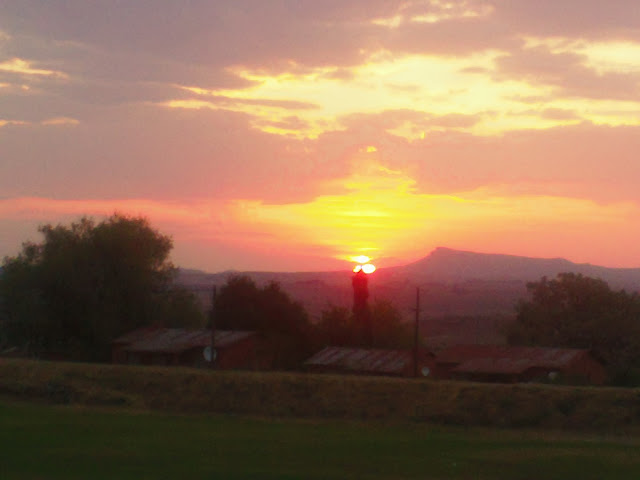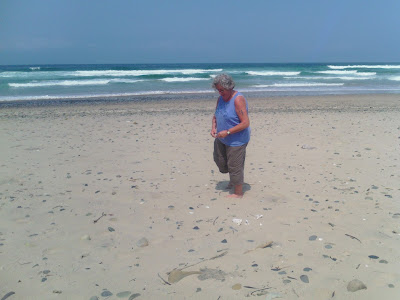This is a story about cross-cultural learning, and sex.
I’ve told it to many other volunteers, and they all say I
should share it with people back home.
So, here you go.
Side note: I’ve started to get really into The Lovecast in
the last few months, a sex and relationship advice podcast by the always frank
and entertaining Dan Savage.
So anyway, it was a chilly night about four months ago, and
I was at a friend’s house. She was teaching me how to make chakalaka, a
delicious side dish common to most of Southern Africa. I asked if she wanted to
listen to this podcast, of which I had a few episodes on my phone. She’s a
teacher at the high school, around my age, and relatively open minded. So we
were chopping veggies and stirring the pot and then eating it with rice, and
all the while she was attentively listening to the episode right along with me,
never flinching or shaking her head in disgust at the frequent mentions of gay
sex or pornography or S&M. My phone
battery was running low, so I turned it off for the remainder of our meal, and
regular conversation resumed.
And then she asks me a question that simultaneously
surprised and delighted me.
“So ausi, what is this g-spot I’ve heard about?”
People in Lesotho, and women in particular, are very suppressed
and hesitant to talk about sex openly, even among people of their same sex. I
was especially tickled because when I had asked her a few months earlier if she
had had sex with her (then) new husband (but in a relationship for six years
before that) before they married, she reacted like a shy twelve year old,
giggling nervously and evading the question.
“Do you masturbate?”, I asked her. “Feel all up in there and
you’ll find it.” She nodded and seemed satisfied. We continued eating, talking
about this and that.
And THEN, she asked me about orgasms. “I can’t do it when we
have sex”, she says, “But I’ve read about other women doing it, on the Internet
and things.”
I was so happy to be having this conversation, and, smiling,
I started to talk to her about the joys of different positions.
Due to a lack of jobs here, many couples live separately,
including her and her husband. So as I was leaving, I asked if, like she does
on many weekends, she would be visiting him the following one. When she smiled
and nodded, I told her to tell me how it went.
A month or so later, I remembered this conversation and
decided to check in with her. “So, how did it go?”, I asked. “It was GREAT”,
she replied, smiling broadly. “I can’t believe more women don’t know about
this.”
So she taught me how to make chakalaka, and I gave her some
tips for how to have an orgasm. In almost a year of living here, it’s one of
the most poignant cross-cultural interactions I’ve had.
Khotso.
 |
| All things grow. Happy Spring! |






























































